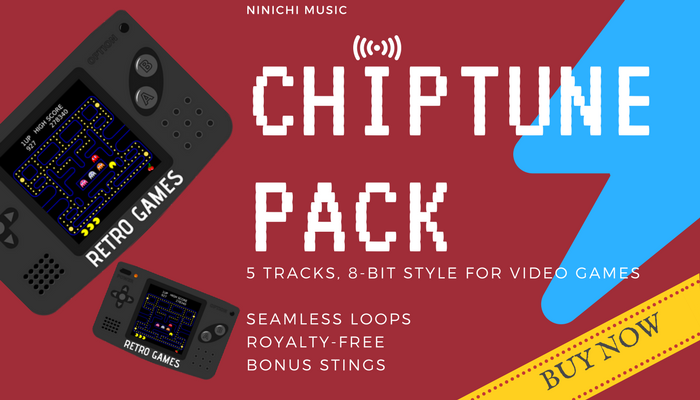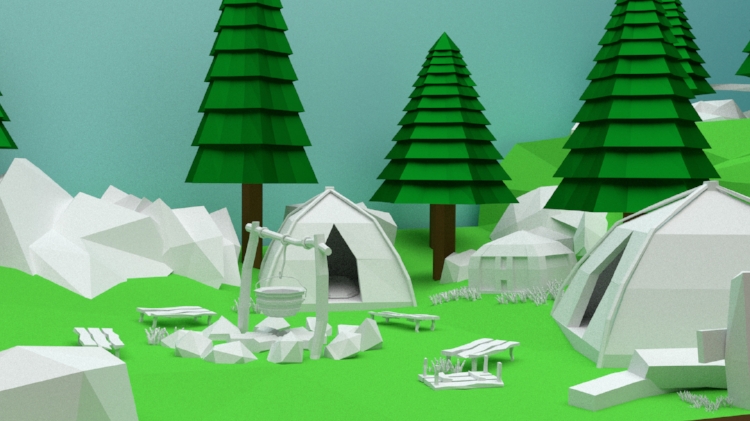Knowing which route to take and which platform to use to distribute your game to the world can be challenging. Maybe you’ve done it before, maybe you haven’t – but the aim of this article is to try and offer a little bit of help in laying out what the main options are and could be for you.
I’m no game developer and so I can’t offer you much help with the ins and outs of it all but I am a game music composer with great enthusiasm and respect for indie game developers. I have worked with many and I have some understanding of the many challenges that you face. I definitely can’t solve them all, but my hope is that in sharing what I’ve learnt and discovered on this topic, it may help to alleviate some of your pain and thus enable you to focus on the areas which give you the most enjoyment and satisfaction through the game development journey and process.
You may also want to explore my main game development/game music blog homepage which highlights many more articles to help you with different aspects of your game development journey.
In the meantime, here are 11 places you may want to be aware of and explore further as options for publishing your game:
1. Steam
Steam offers the largest and most well established PC distribution service around. They’re the ‘ultimate entertainment platform’ with over 100 million people in their community. If you want your game to be in the big leagues, this is where it needs to be.
You will need to publish your game through Steam Direct and by joining their Steamworks Distribution program. There is a submission fee of $100 per product, which is recoupable after your product/game has made $1000 from the steam store. Here is the Steamworks Documentation that you’ll need to read and go through in order to complete the process.
2. Itch.io
Itch is an excellent platform for indie game developers. It’s free to publish your games here and as the seller you have quite a lot of control over what happens. You have complete control over your product page, what price you set for the game and you can adjust the revenue split that you share with Itch.io from 10 to 30% or even 0% if you wish.
Most games are priced between $10-15. Buyers can ‘pay what they want’ and you can also set a minimum price for your game. To get started you’ll need to create an account and then a custom landing page to showcase your game.
3. Game Jolt
It’s easy to get your game up on Game Jolt and it’s free to do. Just create an account, add your game, set your price and off you go! The revenue split is up to you as long as you give 10% or less to Game Jolt. 30% of ad revenues generated from your game page also go to you. The money you make initially goes into a Game Jolt Wallet. If you decide to support and buy other games from your Wallet, you won’t get charged any processing fees.
Check out the Game Jolt marketplace here.
4. Gog
Gog.com is a well-established digital distribution platform for video games and films. It originally launched in 2008 as Good Old Games and is known for it’s DRM-free video games and films.
There is no submission fee for games and for those that get accepted, Gog.com provides a extensive promotion and marketing, including a prominent feature on their website. However, it is not always easy to get your game accepted. Rejections are common as Gog only accept a few games each month. This is where you can submit your game.
The revenue split is 70/30 but there is an option for an advance on your royalties which can help fund the completion of your game. This could be really useful for you and if you opt for this your revenue split shifts to 60/40.
5. Humble Bundle
Humble Bundle claims to have 12 million customers and as such, is a decent platform to release your game on. It’s free to submit games and once you’ve done so, the Humble Bundle team will review it and let you know whether it’s been accepted or rejected. This is the Humble Bundle publishing page.
The revenue split is fairly generous at 75/15 then the remaining 10% goes to charity. If you publish your game this way, you are effectively releasing your game through the Humble Store.
Having said this, Humble offer other options: see their Humble Bundle Development Resources:
· Humble Gamepage - enables you to create your own webpage to sell your game through. Here hosting is free and you get 95% of the revenues after tax and processing fees.
· Humble Widget – has the same 95% revenue split and enables you to sell your game through your own site directly.
6. Kongregate
Kongregate is a solid video game publishing platform which boasts having over 100k web games uploaded, 15 million active players and 100 million game downloads.
They offer opportunities for indie developers wanting to publish PC and mobile games and go into more detail about this on their Kongregate Developers site and via their platform documentation.
If your game performs well on other platforms then it could certainly do well on Kongregate. The platform relies heavily on ratings and every month, the highest rated games receive a cash prize of between $250-1750. Popular games and those with high ratings also get a greater chance of being featured.
Ad revenue ranges from 25-50% depending on exclusivity of the game, and you’ll get 70% of the gross revenues from in-app purchases. Make sure you look at their game submission checklist to increase your chances of getting your game accepted.
7. Gamers Gate
Gamers Gate claims to be the leading digital distribution platform for PC and MAC games, with over 6000 games in their catalogue, available for download. There’s no submission fee and the revenue split is 70/30. However your game needs to be installable and playable in order to be published here i.e. web-based games are not supported.
To submit your game to Gamers Gate, email them with the relevant information. See their FAQs for more information on what to include in your submission.
8. Game House
Game House is a distributor of casual games for PC, Mac and mobile devices. Their online portal offers over 2300 online and downloadable games some of which were created in-house and others by third parties.
Game House Partners offers PC and mobile app publishing and promotion for video games. They say they have 30 million monthly users and 13 million PC and Mac gamers. To submit your game, drop them a message through their online form and someone from their team will contact you to explore things further.
9. Google Play
This should be a fairly obvious one, but if you’re creating a mobile game, you’ll need to start looking at the Google Play App Store.
There’s a one-time fee of $25 to open a publisher account and then you can start the submission process.
Take a look at their Developer Launch Checklist to make sure that your game complies with their various guidelines.
Note that the revenue split is 70/30 and that if you decide to make your game free, this will be set once it has been published i.e. there’s no changing it to paid once you’ve gone past the publishing it stage.
10. Apple Store
If you want your mobile game to be in the The App Store you will need to enrol in the Apple Developer Program, which costs $99 per year. For this fee you will be able to distribute your apps through iOS and Mac OS.
You will need to follow their various guidelines to submit your game to the Apple team for review. The revenue split is 70/30 or 85/15 after the first year, if you have a subscription app.
11. Amazon Appstore
If you’re creating a mobile game for Android, you may want to release it onto the Amazon Appstore. It is free to submit your game and to release it onto the Amazon Appstore but first you will need to create an Amazon Developer Account.
Your game will then be tested through Amazon’s own app testing service and then if it meets all the necessary requirements you can submit it to the appstore for review.
The revenue split is 70/30 and the Live App Testing tool can be very helpful when alpha and beta testing your game. See this Developers Guide to get started.
I hope that you've found this article helpful. Here are a few others that you may want to take a look at:
For more useful advice, ideas and tips on game development, game music and more, please take a minute to browse my blog further!
And of course, if you need support with your game music, have a listen to what's possible or contact me now to explore working together. Also check out my game music album.
About the author: Ninichi is an experienced game music and film music composer. She creates music for games, film and other media, and would be delighted to help you create the music for your game or project.
Contact Ninichi to explore working with her now and follow her @ninichimusic




















